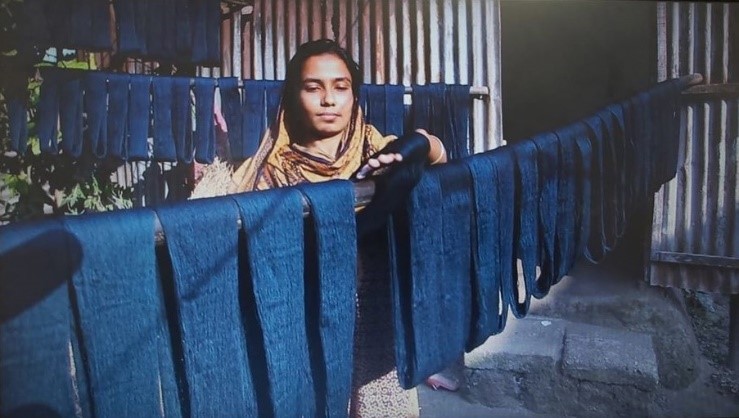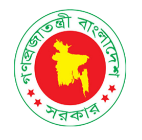Written by SM. Raju Ahmad, FT-OLH&FI- Belkuchi, Sirajganj, SHOUHARDO III, NDP
Sirajganj district, also referred to as the Gateway to the North Bengal, is known for its handloom cottage industries (a manual machine used for producing cloth by weaving). More than half of its three million population are involved with this business in some capacity, particularly women. Similar to most other regions of Bangladesh, Sirajganj is in the great delta region making it prone to floods and river erosion. This, in turn, affects the livelihood of the dwellers where productions could be halted at any time due to floodwater inundating houses including handloom machines. It is in this district where CARE’s SHOUHARDO III has supported 33,200 poor and extreme-poor (PEP) households since 2015.

Taslima and the other group members meet monthly and catch up with each other on how they are achieving their group’s aspirations. “We talk about everything – the good things happening with our lives such as lesser expenditure on health emergencies, including the challenges. Together, we find solutions to whoever member of our group would have any concern. We know who to reach out too in case of any problem we may have”, she shared.
Taslima and the other women in her village are part of the handloom industry as second largest part of employment in Bangladesh, next to agriculture. It can be a tedious job where, from Taslima’s experience, can take up to seven days to process 250 bundles of thread for which she earns 240 BDT (USD 3). Potential buyers or traders are not regular in their village. Individually, Taslima and other spinners produce comparatively lower quantities that could not be priced fairly for selling, but collectively, their production (with other 15 women) make a good quantity to sell to buyers for which they can negotiate a fair price. In the last few years, they had to wait for at least one month before the thread could be collected.
At their own initiative, and in the successful collaboration with other groups in their village, the women came up with the action plan to collectively hire a rickshaw driver to transport the threads they produce to neighboring villages weekly. By dividing the cost of the transportation of about 400 BDT (USD 5) per trip, Taslima and 10 other women contribute regularly to have their threads collected on an agreed schedule. By this approach, their weekly earnings doubled to approximately 480 BDT (USD 6) and they no longer have their thread production sitting idle for a month. Taslima happily shared, “I can contribute more for my children’s education and buy nutritious food. We own our group very much and feel strong since we approach life challenges collectively by forming network among all women in the village through this group.”
April 6, 2021


